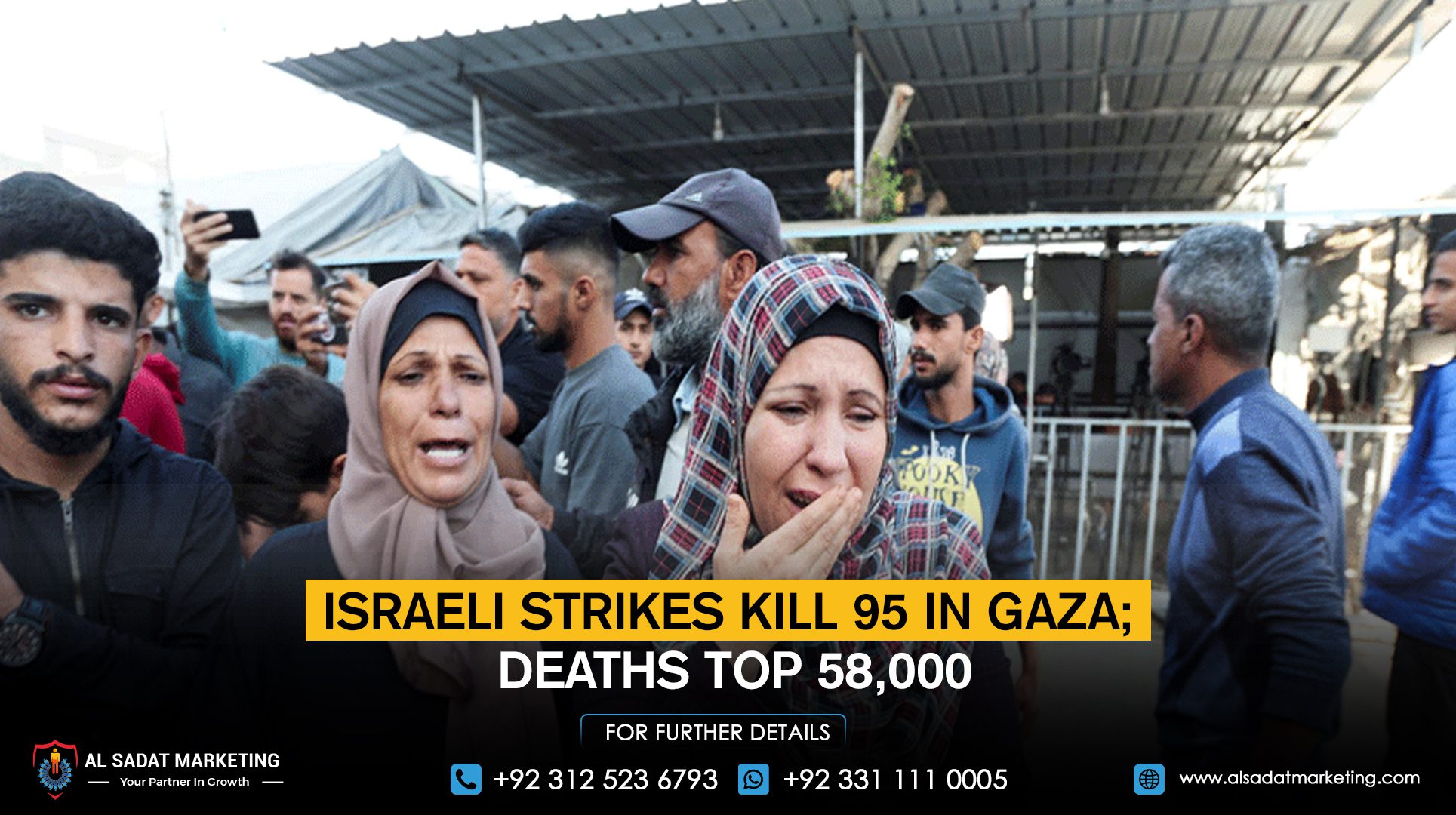The Palestinian Ministry of Health reports that Israel’s military offensive has killed more than 58,000 Palestinians, including at least 95 who were killed in Israeli attacks on Sunday, including an attack on a busy market in Gaza City and a water collection station in the Nuseirat refugee camp.
The market strike killed seventeen people, including well-known doctor Dr. Ahmed Qandil. Meanwhile, a separate missile attack on a water source in the Nuseirat district of central Gaza killed at least ten individuals, seven of them were children, according to local medical officials. According to reports, the strike happened as the kids were waiting in queue to get drinking water. Seventeen more people were hurt.
Although the Israeli military admitted to the Nuseirat attack, they maintained that it was directed at a Palestinian combatant and that a technical issue caused the missile to divert off course. Regarding the market bombing in Gaza City, it has remained silent. The malfunction claim hasn’t been independently confirmed.
Citing a recurring pattern of civilian deaths in Gaza, Jessica Dorsey, an expert in international law at Utrecht University in the Netherlands, questioned Israel’s justification.
In an interview with Al Jazeera, Dorsey stated, “Mistakes do happen in war.” However, one would anticipate more accuracy rather than recurrent civilian casualties given Israel’s sophisticated capabilities. It begs the issue of whether these occurrences are a component of a larger strategy.
The humanitarian crisis gets worse.
The Gaza Health Ministry has released the most recent statistics, which show that 58,026 people have died since the conflict started on October 7, 2023. Women and children have accounted for over half of the fatalities. Under the ongoing Israeli siege, Gaza’s 2.1 million residents continue to experience severe shortages of food, medicine, clean water, and electricity, and at least 138,500 people have been injured.
Numerous United Nations agencies, including UNICEF, the World Food Programme (WFP), and the World Health Organisation (WHO), issued warnings on Sunday that a serious fuel shortage could soon force the suspension of all relief activities due to the deteriorating humanitarian situation.
“Fuel must be allowed into Gaza in sufficient quantities and consistently to sustain life-saving operations,” eight United Nations agencies said in a joint statement, expressing great concern. Without it, there won’t be any clean water, health services, or ability to provide relief.
The authorities emphasised that sewage systems, hospitals, ambulances, and water desalination facilities are already in danger of shutting down.
Increase in malnutrition among children
In June alone, at least 5,800 youngsters received a malnutrition diagnosis, with more than 1,000 of them in critical condition, according to UNICEF. “The bodies of children are deteriorating. This dilemma is more than just one of nourishment. The agency declared on X (previously Twitter) that there was an emergency for the survival of children.
A seven-month-old girl called Salam died of malnutrition on Sunday, according to UNRWA, the most recent of a growing number of infants in Gaza who are said to have perished from hunger-related causes. According to local officials, since the start of the conflict, at least 67 children have perished from starvation.
“Intentional targeting” accusations
Israeli military and international contractors were charged by Gaza’s Government Media Office with intentionally harming civilians at relief distribution locations. The US-sponsored Gaza Humanitarian Foundation (GHF) centres were denounced by the office as “death traps,” arguing that they are a component of “genocide engineering under US sponsorship.”
Since the GHF started working in May, at least 805 individuals have reportedly been killed and over 5,200 injured while trying to get relief.
Talks of a ceasefire stall
The latest round of violence coincides with the ongoing deadlock in peace talks. The growing humanitarian situation has alarmed mediators, who have cautioned that ongoing fuel shortages and civilian casualties could sabotage any efforts to find a solution.
Israel and Hamas have not made much progress in recent weeks, despite repeated international appeals for a truce. Humanitarian organisations caution that Gaza may experience “a total collapse of civilian infrastructure” if nothing is done right away.










